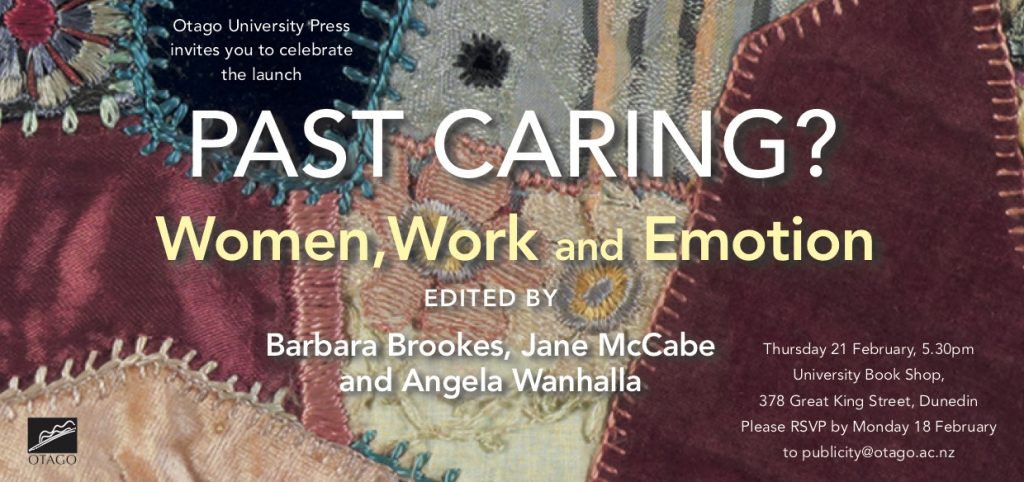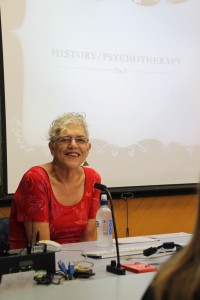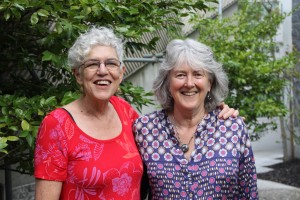Book Launch of Past caring? Women, Work and Emotion
Please come along to UBS on Thursday 21 February to celebrate the launch of Past Caring? Women, Work and Emotion co-edited by CRoCC members Barbara Brookes, Jane McCabe and Angela Wanhalla and published by Otago University Press. All are welcome, but please RSVP for this event (address is provided below).
The Emotions of Family History
This week the Centre is hosting several visiting scholars: Kristyn Harman and Nick Brodie from the University of Tasmania, as well as Tanya Evans from Macquarie University, a noted historian of women, motherhood and the family in Britain and Australia. While in Dunedin, Tanya will give a public lecture on ‘The Emotions of Family History’.
In this lecture Tanya will explore the emotions of family history in Australia, England and Canada – why family historians are motivated to undertake their research and the emotional impact of their discoveries. Using survey data and oral history interviews it will reveal some of the ways in which historical research and communication about the past provides ‘ordinary’ people with social, emotional and cultural capital – how it has transformed them, their lives and the lives of those around them. Family history researchers are sometimes dismissed by the academy for their amateurism and they are also criticised for seeking emotional connections with the past lives of their forebears. I want to suggest that these criticisms are linked. The derision still sometimes shown towards genealogists needs to be challenged and the practice of family history better understood because it has an enormous impact on historical consciousness and individual subjectivities.
All are welcome to attend the talk, which is scheduled for Tuesday 14 November, 5.30pm in Moot Court, 10th floor of the Richardson Building at the University of Otago.
Family Emotional Economies & Disability at Birth
Last year, Professor Barbara Brookes (a CRoCC Steering Committee member), contributed a post to a History of Medicine Blog about the ‘complicated emotions surrounding disability at birth’. You can read the Blog post here. In it Barbara traces the emotional responses and experiences of families to disability in mid-twentieth century New Zealand through the dissertations of University of Otago fifth year medical school students in public health. At that time, the students were encouraged to study what was then described as “intellectually handicapped” children, and did so by going into the community and talking to families, but particularly mothers. The dissertations are a rich archive for social history, but are particularly revealing of attitudes to disability, from within and outside the family during the 1950s and 1960s.




